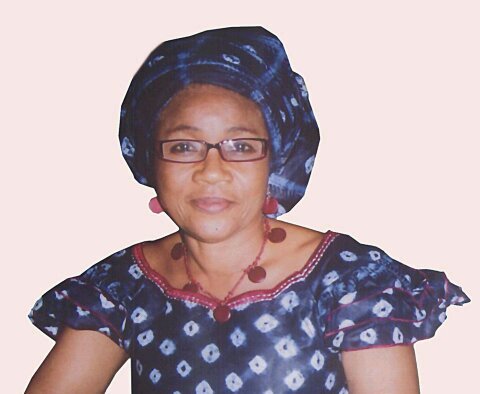The above title, from a song by Rihanna, may well sum up an aspect of the modern woman’s dilemma. It was ‘different strokes for different folks’ some years ago when a Nigerian born billionaire issued newspaper advertisements purportedly restraining his estranged wife from ‘parading’ his surname. Some cheered him, others condemned his action. It probably didn’t occur to the man that the maiden name of the lady – a Princess of a city with economic and historical importance – is a more enduring legacy than his surname. Such is the presumed importance of a man’s surname to a woman, that it is handy as a weapon of ego destruction or restoration. It’s also interesting that despite the touted benefits, less and less women are excited at the prospect of burying their identity beneath a man’s surname. Education and lucrative jobs are changing women’s mindsets towards acquiring status-related labels that previously seemed inevitable. Fewer women lose sleep these days over being addressed as Ms or Mrs, opting to simply be addressed by their names, without tags. This is hugely different from 1990 when there was so much concern about whether the magazine, Pan African Ms. would be acceptable to the target audience. Today, there would be less worry, thanks to the ascendance of Feminism and Feminist thought!
The growing popularity of Feminism is evident in the number of women that prefer to retain their maiden name after marriage, as well as those who don’t think that their marital status defines them. As I write, there’s a newspaper beside me featuring the trending practice of single motherhood by choice. Times are really changing though not all Nigerians have come to terms with the new reality. My niece recently had an encounter with a bank supervisor who felt that it was illegal for her, a married woman, to open an account in her maiden name. His position was that a woman loses her maiden name in marriage, though he couldn’t back it up with any law. Apparently he believed that the change of name that is usually advertised following marriage is a renunciation of the woman’s maiden name, whereas its essence is to inform the public that the names mentioned, refer to one and the same person. That is why ‘all documents bearing the former name remain valid.’
The legal position on the matter is clear. Barrister Uju Okeke of the Centre for Mmadu, cites E. I. Nwogugu’s ‘Family Law in Nigeria’ which states that, “A wife’s taking of her husband’s name in marriage is custom and not legal”. Ms. Okeke adds that nothing stops a wife from retaining her maiden name, as her freedom of choice is supported by international and regional conventions and treaties ratified by Nigeria. Article 16(g) of the Convention on the Elimination of all Forms of Discrimination Against Women (CEDAW) provides for ‘the same personal rights as the husband and wife, including the right to choose a family name’. The Women’s Protocol to the African Charter on the Rights of Women in Africa is more explicit in article 6 that a ‘married woman shall have the right to retain her maiden name to use it as she pleases, jointly or separately with her husband’s surname.’ These provisions are also covered by the Constitution the Federal Republic of Nigeria which bars discrimination on the basis of sex. It’s equally noteworthy that no law exits in Nigeria that stops a woman from keeping her husband’s name after divorce, as the Supreme Court held (Offoboche versus Offoboche, 2006) that she may retain the name at divorce or following death. It further explained that; ‘No person, group of persons or family has a monopoly of names. Persons have unrestrained liberty to pick and choose names that please them.’
Whatever the average Nigerian woman would gladly do for marriage, losing her maiden identity is not one of them. Many women I spoke to would prefer to retain their maiden name if their spouse wouldn’t mind. For most, the only hindrance is the fear of negative reaction from the husband and his family. But the women were positive about the advantages of retaining their identity after marriage, as it would link them with former colleagues and schoolmates, enhance networking in business and society, and families would be less fixated on male children. With the recent Supreme Court ruling affirming the inheritance rights of females, a married woman can also perpetuate her family name and legacy.
Apparently, the real problem with the keeping of the maiden name is the man’s ego. However, much as ego issues could become delicate, it’s a woman’s right to bear her maiden name, and the human rights of any person doesn’t have to depend on another person’s approval.
Ada Agina-Ude is a journalist, women’s rights activist and community leader. She is an amazingly young 70 year old grandmother.


2 Responses
Time indeed changing and aside ego, I think most men just can’t easily change with it
I smile and greet you Ma. I guess you are as forward looking as my Mum who is about your age. She insisted each time her kids got married on walking them down the aisle along with our Father because she too had contributed to the life of this child.
That being said, am not an advocate of single parenthood by choice. I see it as an act of selfishness. The choice is about the mother alone and not in the child’s best interest.
Happily, I have officially informed my staff to refer to me as Ms.
Sadly, the pressure to marry at all cost in Nigeria comes from other females and rarely from men. We ourselves diminsh ourselves and are our own worst detractors. It is therefore refreshing to have an older Amazon take this stance. Thank you.